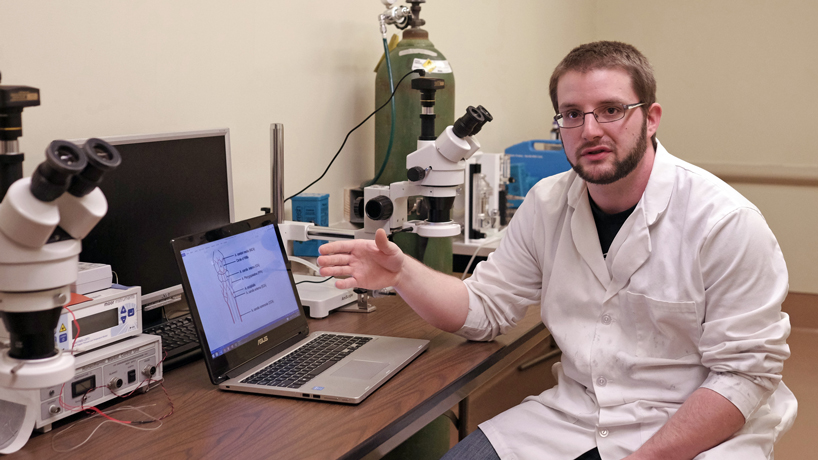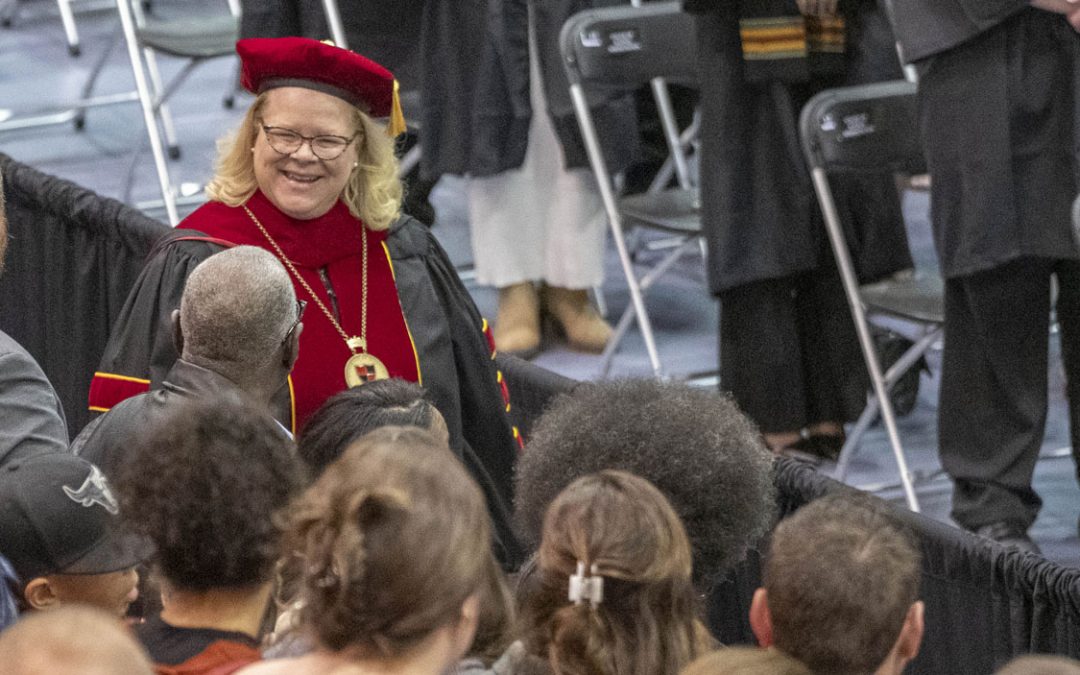
Jacob Huffman, a UMSL psychology major, received a College of Arts and Sciences research grant. His study examines the positive and negative effects of nicotine on stroke victims. (Photo by August Jennewein)
Would you ever believe that nicotine could be beneficial to your health?
University of Missouri–St. Louis student Jacob Huffman hopes to prove so with his research examining the positive effects nicotine could have on stroke victims.
Huffman, who is majoring in psychology at UMSL and a student in the Pierre Laclede Honors College, was one of five undergraduate students to receive a $1,000 research grant from UMSL’s College of Arts and Sciences.
“Nicotine can make strokes worse, but it can also make strokes better,” said Huffman, a St. Charles, Mo. resident. “If you are a smoker or someone who smokes e-cigarettes, and you had a high nicotine intake and you had a stroke, it would be worse than someone who did not smoke. But if you’re a nonsmoker and nicotine is given to you at the onset of a stroke, recovery tends to be better.”
Huffman said he’s always been interested in interpreting and studying the brain. After receiving the opportunity to work in the lab of George Taylor, professor of psychology at UMSL, he began looking at chemical effects on the brain.
“The most impressive feature of Jacob is his tenacity,” Taylor said. “One of our projects is using a rodent animal model to understand the neuroprotective capacity of estrogen in stroke. The unique twist for this project is to assess estrogen’s capacity to reduce the depression that is a common aftermath with stroke patients. Jacob’s experiment is an offshoot of that work. The procedure is to temporarily block the middle cerebral artery by inserting a suture soaked in silicone into the juncture between the internal and middle arteries. This is an extremely difficult procedure in any animal, but, in mice, it is particularly challenging. With old eyes and shaking hands, I don’t even make an attempt to clip the tiny vessels and insert the suture. Even my best graduate students had great difficulty with the surgery. Jacob kept working and kept working until he was successful. Very impressive.”
Using the basic ideas behind Taylor’s study, Huffman decided to tailor his research on nicotine.
Nicotine is often thought to be synonymous with cigarettes and negative health effects, he said. But most of the disease-related illnesses are a result of the tar and carcinogenic chemicals in the smoke and not the nicotine itself.
Huffman said he hopes to find not only that nicotine has potential medical benefits, but also the capacity to aid in retaining memory and motor behavior in stroke victims.
He will present his research findings during the Midwestern Psychological Association in Chicago this summer.















